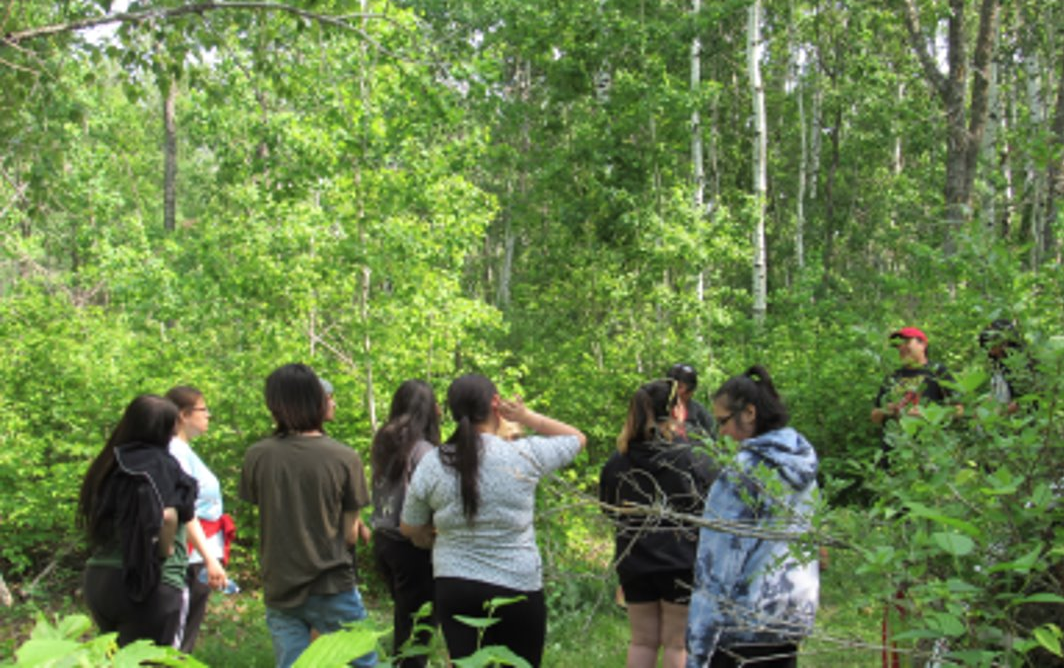When CIER started working with Sandy Bay Ojibway First Nation (SBOFN) on a climate change adaptation planning project in 2021, it quickly became apparent that tree planting was an adaptation action with broad community support. The community of about 5,000 people is located along the western shore of Lake Manitoba and is impacted by climate change in many ways, including more frequent and severe extreme weather. Sometimes, extreme weather results in extended events like flooding, droughts, and wildfires.
In Anishinabemowin, Sandy Bay Ojibway First Nation is known as Gaa-wiikwedaawangaag, which means ‘along the sandy shore.’ Before ending up in its current location, SBOFN was forcibly relocated several times in the nineteenth century. Colonial governments also pressured them to farm their reserve land, which resulted in deforestation and the creation of open pastures.
Today, only 12% of the community is forested. Not only do trees act as windbreaks against increasingly common winter storms, but they also provide shade, store water, improve soil health, improve air quality, provide wildlife habitat, and sequester carbon, along with many other benefits.
In fall 2022, SBOFN community staff undertook an initiative to increase forest cover by engaging community members to partake in tree planting. This initiative encouraged community members to transplant saplings from local ditches to other areas where these saplings could safely grow and develop into beneficial trees. Without the transplanting initiative, SBOFN public works would have mowed these saplings during regular maintenance.
The sapling transplant initiative spun off from a tree planting project that took place in early summer 2022, during which nearly 600 trees were distributed to community members and planted on residential properties.
One year later, in the summer of 2023, the SBOFN and CIER climate change initiative received a boost in funding from the Wawanesa Insurance Community Impact Fund, which invests in positively impacting climate change. This past October, the SBOFN climate change coordinator, Kateri Roulette, organized two online contests for the youth: a pumpkin carving contest, and a short story contest.
The winners of each contest were honoured in a community dinner that included deer meat and other local food harvested a few weeks prior. This funding will assist SBOFN with youth-based climate change activities, such as education and awareness. It also supports a winter fishing derby for youth, and the option to purchase fruit-bearing trees like saskatoons, plums, and apples to plant in 2024.

